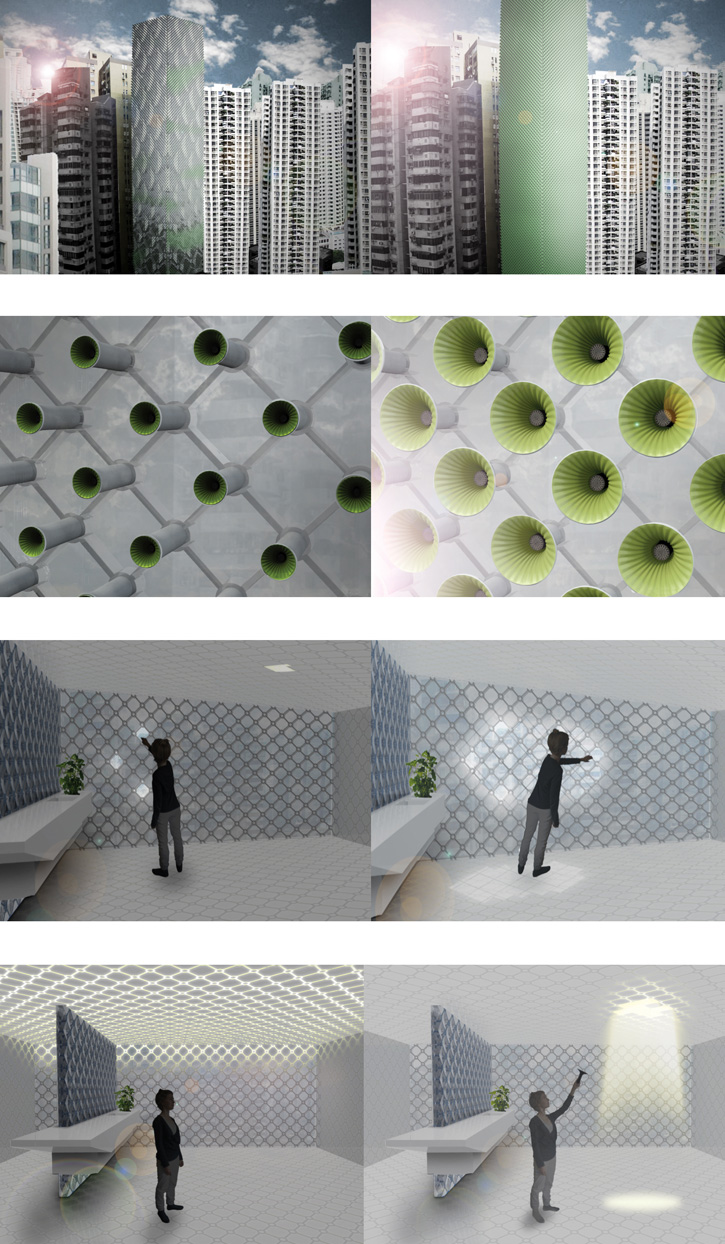
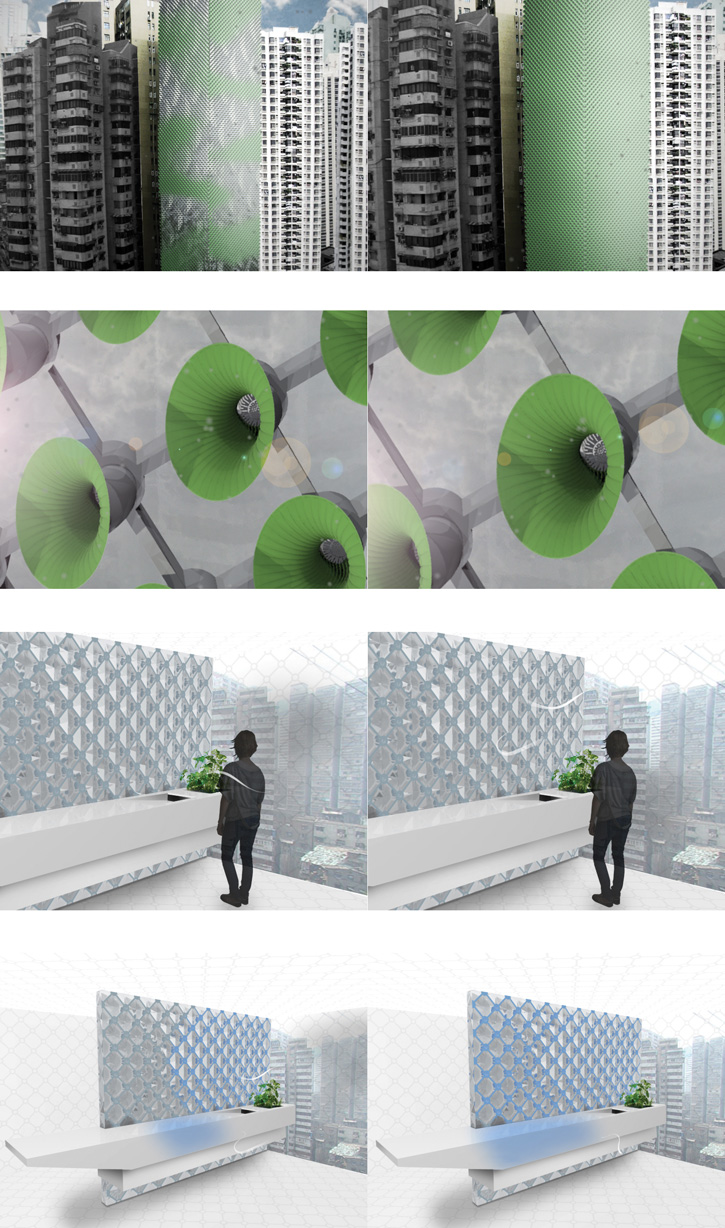
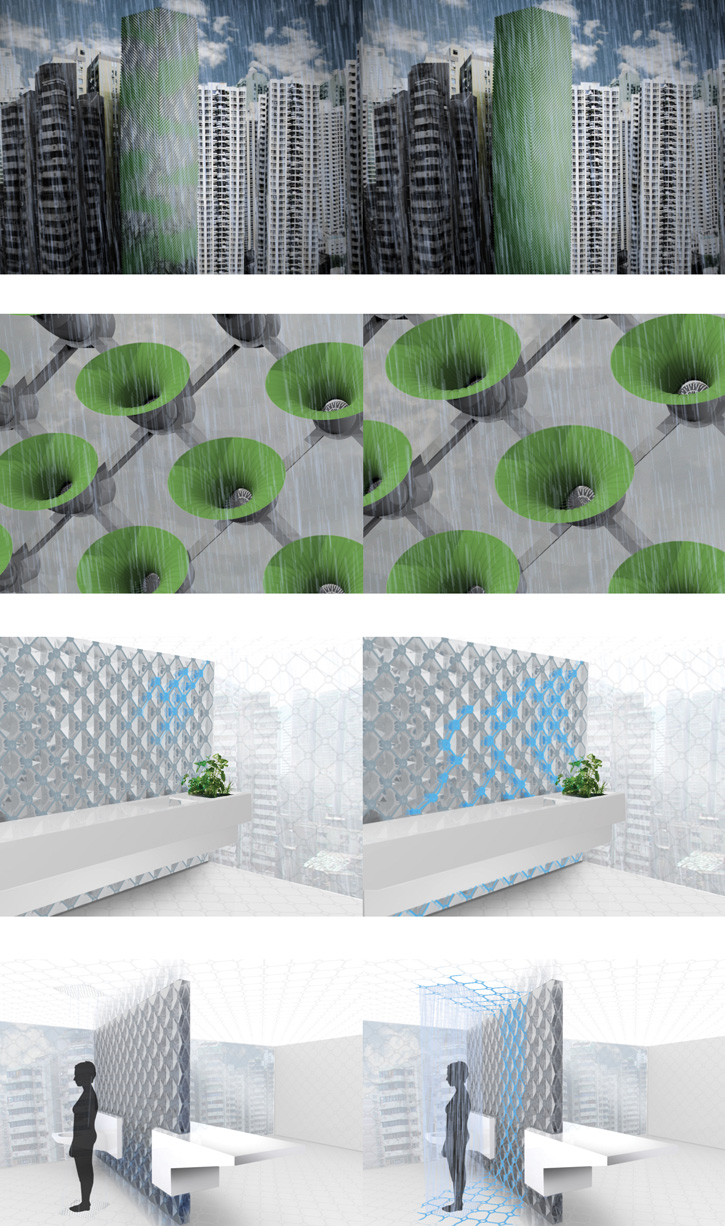
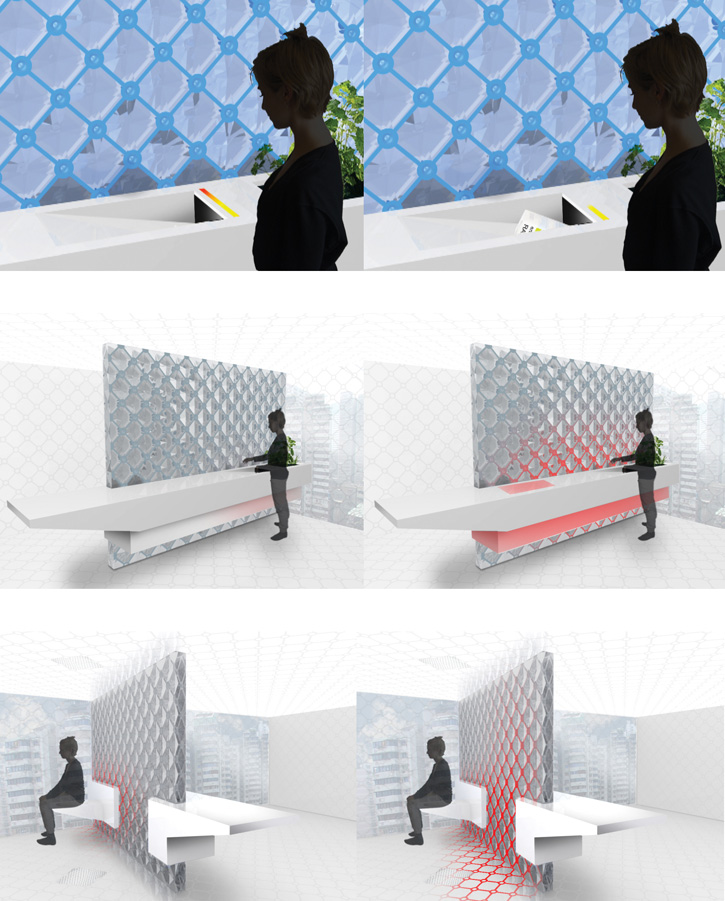
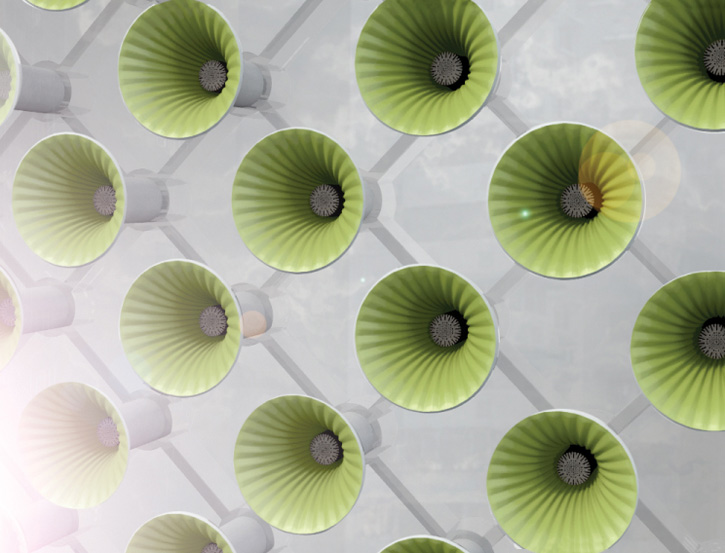
Off the Grid:Sustainable Habitat 2020
Today, our habitat is very dependent on the international grid of
energy &water. Energy crisis, clean water shortage, global warming
and environmental pollution are worldwide problems. Understanding
cities as dynamic and ever-evolving eco-systems can help us to
formulate strategies for a sustainable urban future. The whole project
is based on the the brief to develop sustainable housing for urban
megalopolis in China in 2020.
This is exploring the integration of electronics and bio chemical
functionalities into the inert material of the built environment. The
design of the concept fundamentally changes the current approach to
buildings and habitat. This future habitat shifts from the current
state where the building surfaces are benign inert ‘dumb’ materials
only used for construction and shielding purposes to sensitive
functional skins that are ‘alive’ and act as membranes to harness
energy. A membrane creates a strong link between the exterior and
interior of the habitat and used as a transporter collecting and
channeling the elements of air water and light - from the outside
feeding into the inside space. This will supply the habitat with all
necessary sources to be able to live off the grid.
Light
The active skin of a building reacts to sunlight and automatically
moves into the most efficient position to channel light and generate
energy. By collecting and channeling the natural light no electricity
will be needed during the day for lighting. Bringing natural light into
our homes will not only save energy but also provide all the advantages
for health and well being.
Air
The active skin of the building reacts to the wind. By channeling air
and wind through the skin of the building energy will be generated and
the air will be filtered to provide clean air inside the building.
Compressed and dissipated through funnels, the air will also be cooled
for natural air-conditioning. Outside air is cleaned and stripped of
CO2 before being exhausted from the building.
Water
The active skin of the building reacts to the rain and
collects and channels rainwater into the habitat. By catching moisture
from the air the facade collects water even in dry periods.
Through purification, filtration and reuse, water will be used in a closed loop and fresh water consumption would be optimized.
Waste
Human waste and other organic waste will be transformed into
biogas energy. The biogas can be used for heating and cooking as well
as providing hot water for washing.
Green architecture has been around for a while now and this is a good thing because they consist of state-of-the-art techniques and they are helping us to take care of our planet. Eco-structures are also very cool and another great example is the Habitat 2020 which was designed by Philips for China as a sustainable development.
These EcoHomes will be built in urban megalopolis and they combine electronics with bio-chemical functionalities which lead to a new material that acts like a sensitive functional skin that is “alive” and it harnesses energy.
The new skin acts like a membrane which absorbs air, water and light from the outside and it brings it into the interior. This means that there is possible to forget about our dependence on the grid because the new skin provides us with every necessary source. The membrane will move around in order to get into the best position to harness as much energy as possible.
The active skin will channel the air and the wind in order to supply the interior with clean and filtered air, and natural cooling. Also, the designers developed the skin to react to the rain which means that it will collect and channel water for the inhabitants.
The human and organic waste will be entirely recycled and will be converted into bio-gas energy that will be used for heating and cooking, and will produce hot water for washing.
This project is amazing as I never thought that is possible to “design” an existence without the dependence on the grid. Check out an amazing video below!
'Pavilion&Installation' 카테고리의 다른 글
| [ DSDHA ] Potter's Fields Park Kiosks (0) | 2008.10.14 |
|---|---|
| [ oficina de arquitectura ] Women in the Memory Monument (0) | 2008.10.14 |
| [ Die Baupiloten ] Bühnenbäume (0) | 2008.10.10 |
| [Subarquitectura] Tram Stop (0) | 2008.10.09 |
| [ Kram/Weisshaar ] VTOL (0) | 2008.10.08 |